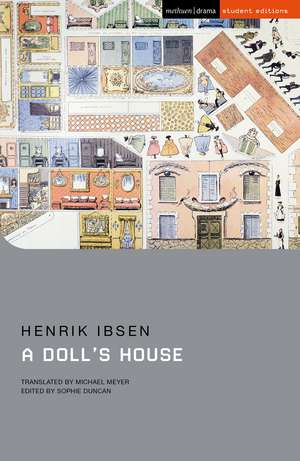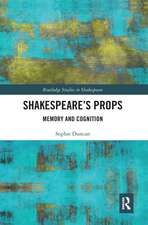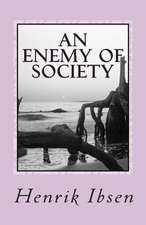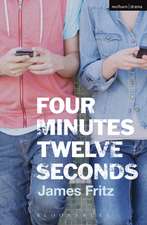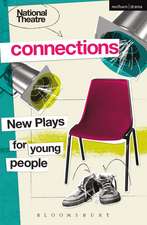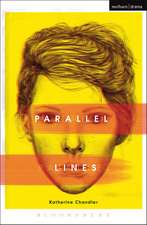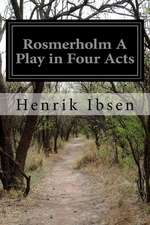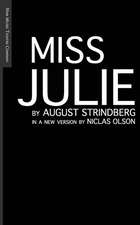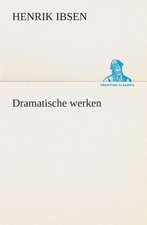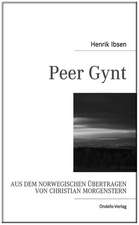A Doll’s House: Student Editions
Autor Henrik Ibsen Sophie Duncan Traducere de Michael Meyeren Limba Engleză Paperback – 30 sep 2020
Din seria Student Editions
-
 Preț: 41.97 lei
Preț: 41.97 lei - 8%
 Preț: 72.58 lei
Preț: 72.58 lei - 20%
 Preț: 71.45 lei
Preț: 71.45 lei - 14%
 Preț: 72.24 lei
Preț: 72.24 lei - 7%
 Preț: 74.03 lei
Preț: 74.03 lei - 23%
 Preț: 72.18 lei
Preț: 72.18 lei - 14%
 Preț: 73.56 lei
Preț: 73.56 lei - 13%
 Preț: 74.06 lei
Preț: 74.06 lei - 8%
 Preț: 73.08 lei
Preț: 73.08 lei - 8%
 Preț: 59.24 lei
Preț: 59.24 lei - 8%
 Preț: 73.44 lei
Preț: 73.44 lei - 14%
 Preț: 71.98 lei
Preț: 71.98 lei - 9%
 Preț: 71.28 lei
Preț: 71.28 lei - 8%
 Preț: 73.14 lei
Preț: 73.14 lei - 14%
 Preț: 72.68 lei
Preț: 72.68 lei - 13%
 Preț: 74.03 lei
Preț: 74.03 lei - 7%
 Preț: 74.03 lei
Preț: 74.03 lei - 19%
 Preț: 72.68 lei
Preț: 72.68 lei - 14%
 Preț: 72.68 lei
Preț: 72.68 lei - 8%
 Preț: 72.42 lei
Preț: 72.42 lei - 8%
 Preț: 72.68 lei
Preț: 72.68 lei - 14%
 Preț: 84.99 lei
Preț: 84.99 lei - 14%
 Preț: 72.89 lei
Preț: 72.89 lei - 8%
 Preț: 79.70 lei
Preț: 79.70 lei - 18%
 Preț: 74.48 lei
Preț: 74.48 lei - 8%
 Preț: 72.68 lei
Preț: 72.68 lei - 14%
 Preț: 85.89 lei
Preț: 85.89 lei - 14%
 Preț: 59.87 lei
Preț: 59.87 lei - 9%
 Preț: 84.99 lei
Preț: 84.99 lei - 8%
 Preț: 72.48 lei
Preț: 72.48 lei - 13%
 Preț: 74.03 lei
Preț: 74.03 lei - 14%
 Preț: 72.68 lei
Preț: 72.68 lei - 8%
 Preț: 72.51 lei
Preț: 72.51 lei - 14%
 Preț: 66.60 lei
Preț: 66.60 lei - 7%
 Preț: 74.03 lei
Preț: 74.03 lei - 14%
 Preț: 72.24 lei
Preț: 72.24 lei - 8%
 Preț: 59.77 lei
Preț: 59.77 lei - 8%
 Preț: 72.99 lei
Preț: 72.99 lei - 7%
 Preț: 74.48 lei
Preț: 74.48 lei - 14%
 Preț: 71.95 lei
Preț: 71.95 lei - 9%
 Preț: 71.80 lei
Preț: 71.80 lei - 8%
 Preț: 72.61 lei
Preț: 72.61 lei - 18%
 Preț: 73.56 lei
Preț: 73.56 lei - 8%
 Preț: 65.90 lei
Preț: 65.90 lei - 8%
 Preț: 72.33 lei
Preț: 72.33 lei - 19%
 Preț: 85.17 lei
Preț: 85.17 lei - 13%
 Preț: 73.14 lei
Preț: 73.14 lei - 14%
 Preț: 72.29 lei
Preț: 72.29 lei - 7%
 Preț: 74.48 lei
Preț: 74.48 lei
Preț: 73.49 lei
Preț vechi: 79.66 lei
-8% Nou
Puncte Express: 110
Preț estimativ în valută:
14.06€ • 14.63$ • 11.61£
14.06€ • 14.63$ • 11.61£
Carte disponibilă
Livrare economică 24 martie-07 aprilie
Livrare express 07-13 martie pentru 23.45 lei
Preluare comenzi: 021 569.72.76
Specificații
ISBN-13: 9781350116788
ISBN-10: 1350116785
Pagini: 136
Dimensiuni: 129 x 198 x 12 mm
Greutate: 0.13 kg
Ediția:3
Editura: Bloomsbury Publishing
Colecția Methuen Drama
Seria Student Editions
Locul publicării:London, United Kingdom
ISBN-10: 1350116785
Pagini: 136
Dimensiuni: 129 x 198 x 12 mm
Greutate: 0.13 kg
Ediția:3
Editura: Bloomsbury Publishing
Colecția Methuen Drama
Seria Student Editions
Locul publicării:London, United Kingdom
Caracteristici
The play is published alongside a contemporary commentary, which looks at the play as a feminist drama, considers the context in which it was written, and delves into its dramatic potential, opportunities and challenges
Notă biografică
Henrik Ibsen (1828-1906) was a Norwegian playwright and poet whose realistic, symbolic and often controversial plays revolutionised European theatre. He is widely regarded as the father of modern drama. His acclaimed plays include A Doll's House, Ghosts, Hedda Gabler, An Enemy of the People and The Pillars of the Community.Sophie Duncan is a Fellow of Christ Church, University of Oxford. She received her DPhil from Brasenose College, Oxford, where she was Senior Hulme Scholar, in 2013. She then became Stipendiary Lecturer at St Catherine's and Supernumerary Fellow in English at Harris Manchester College, before returning to full-time research at Magdalen. She has been a guest lecturer at King's College London and the Bread Loaf School of English. In 2013, she became Editor of Victorian Network. Her research includes longstanding links with the world of professional theatre, and she works regularly as a historical advisor/dramaturg in theatre, television, radio and film. Her publications include Shakespeare's Women and the Fin de Siècle (Oxford University Press) and she has published on the African American actor Ira Aldridge, the bibliographical history of Oscar Wilde, and Bram Stoker's Dracula (1897).
Cuprins
The introduction and commentary to the play covers:Cultural and theatrical contextsThemesDramatic devicesPerformance historyTrends in scholarly and popular debate
Recenzii
Ibsen's great feminist drama
Many a husband reeled back in horror after the premiere of Ibsen's marriage-shaking play in 1879. The fellow was actually challenging the sacred values of family life by suggesting a woman could break free of the marital gilded cage. What next? They will want the vote.
Ibsen's drama is a powerful statement of his radical beliefs about gender, the folly of idealism and the nature of modern love. In essence, it is the story of woman who wakes up to reality.
Ibsen caused a storm with the notion that women were as entitled as men to think and live for themselves.
Many a husband reeled back in horror after the premiere of Ibsen's marriage-shaking play in 1879. The fellow was actually challenging the sacred values of family life by suggesting a woman could break free of the marital gilded cage. What next? They will want the vote.
Ibsen's drama is a powerful statement of his radical beliefs about gender, the folly of idealism and the nature of modern love. In essence, it is the story of woman who wakes up to reality.
Ibsen caused a storm with the notion that women were as entitled as men to think and live for themselves.
